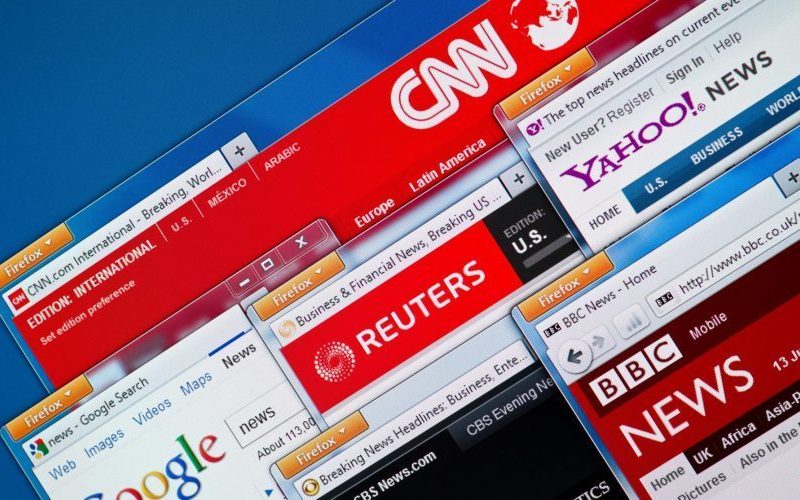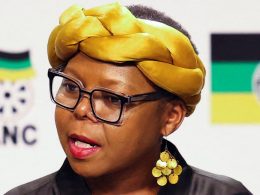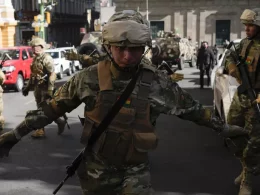Impact of Global Events on Media Narratives
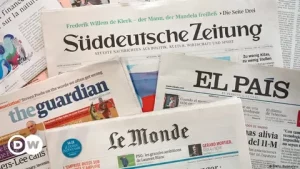
Global events exert a profound influence on media narratives, shaping the way stories are told and how information is disseminated to the public. The media plays a crucial role in influencing public perception and discourse, often acting as the primary source of information for many individuals. When a significant global event occurs, whether it be a natural disaster, a political upheaval, or a major sporting event, media outlets around the world rapidly adapt their narratives to cover these events comprehensively. This dynamic nature of media coverage ensures that the public remains informed, but it also means that narratives can evolve swiftly, sometimes leading to shifts in public opinion and discourse. The immediacy and intensity of media coverage during global events underscore the media’s role in shaping the collective understanding of these occurrences.
Role of Media in Shaping Public Perception
The media’s influence on public perception is significant, particularly during global events. The way these events are reported can shape societal attitudes and opinions, often determining how the public interprets and reacts to the information presented. For instance, the framing of a political crisis can influence public sentiment towards the involved parties, while the portrayal of a humanitarian disaster can mobilize international support and aid. The media’s choice of language, imagery, and focus areas can either highlight certain aspects of an event or downplay others, thereby guiding public perception in specific directions. This power to shape societal attitudes underscores the responsibility of the media to report accurately and ethically, ensuring that the public receives a balanced and comprehensive view of global events.
Case Studies of Major Global Events
Examining case studies of major global events reveals the media’s influential role in shaping public perception. For instance, during the Arab Spring, media coverage played a pivotal role in informing the global audience about the unfolding political changes and social upheavals. The portrayal of protests, government responses, and the aspirations of the people involved significantly influenced international perspectives and diplomatic responses. Similarly, the media’s coverage of the COVID-19 pandemic has been instrumental in shaping public understanding of the virus, influencing behavior, and guiding policy decisions. These case studies highlight how media narratives can shape the public’s understanding and reaction to global events, demonstrating the media’s power in influencing societal responses.
Media Bias and Objectivity Challenges
Global events often present challenges to media objectivity, with biases shaping the narratives presented to the public. Media outlets, driven by various political, economic, and cultural influences, may present skewed versions of events, emphasizing certain angles while neglecting others. This bias can significantly shape public perception, leading to polarized views and misinformation. The challenge of maintaining objectivity is particularly pronounced during contentious global events, where differing perspectives and interests are at play. The media’s role in providing accurate and balanced coverage is crucial in such contexts, as biased reporting can exacerbate conflicts and misunderstandings. Recognizing and addressing media bias is essential to ensure that the public receives a fair and comprehensive view of global events.
Technological Advancements in Media Coverage
Technological advancements have revolutionized media coverage of global events, enhancing the immediacy and depth of reporting. The use of drones, for instance, allows for real-time coverage of events, providing unprecedented access to remote or hazardous locations. This technology enables media outlets to capture and broadcast live footage, offering the public a firsthand view of unfolding events. Additionally, the integration of artificial intelligence (AI) in media coverage has introduced predictive analytics, enabling media organizations to anticipate trends and developments in global events. AI can analyze vast amounts of data to identify patterns and predict outcomes, thereby enhancing the accuracy and relevance of media reporting. These technological advancements have transformed the landscape of media coverage, making it more dynamic and responsive to global events.
Social Media’s Influence on Event Reporting
Social media has significantly shaped media coverage of global events, amplifying their impact and influencing traditional media reporting. Platforms like Twitter, Facebook, and Instagram allow for real-time sharing of information, enabling individuals to report and react to events as they happen. This immediacy can drive traditional media outlets to adapt their coverage, often incorporating social media content into their narratives. Social media also serves as a powerful tool for mobilizing public opinion and action, as seen in movements like #MeToo and Black Lives Matter. The viral nature of social media can amplify global events, ensuring that they receive widespread attention and coverage. This interplay between social media and traditional media highlights the evolving nature of event reporting in the digital age.
Future Trends in Global Media Coverage
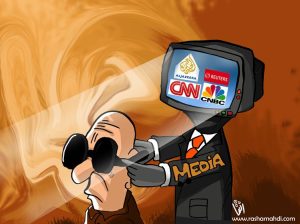
Looking ahead, global events will continue to shape media coverage trends, influencing how stories are told and information is disseminated. The increasing integration of technology in media coverage, such as AI and real-time data analytics, will likely enhance the accuracy and immediacy of reporting. Additionally, the role of social media in shaping narratives is expected to grow, with platforms becoming even more central to how global events are covered and understood. As media organizations navigate these changes, there will be a continued emphasis on maintaining objectivity and addressing biases to ensure fair and accurate reporting. The future of global media coverage will be defined by its ability to adapt to technological advancements and the evolving landscape of global events, setting new standards for how information is shared and consumed.






